Filter by
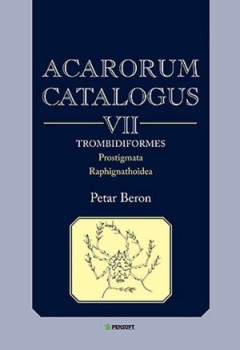
Acarorum Catalogus Vii
The 7th volume of my series “Acarorum Catalogus” concerns the mite superfamily Raphignathoidea. The 12 families of this superfamily consist of 69 genera and some 1087 species and are being studied intensely, particularly by acarologists from China, South Africa, Turkey, Iran, Crimea and other countries or areas. Some members of the Raphignathoidea are suitable for biological pest control (G…
- Edition
- -
- ISBN/ISSN
- 9786192480073
- Collation
- -
- Series Title
- -
- Call Number
- -
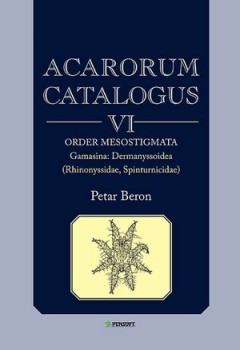
ACARORUM CATALOGUS VI. Order Mesostigmata. Gamasina: Dermanyssoidea (Rhinonys…
The sixth volume of this series "Acarorum Catalogus" is devoted to the families Rhinonyssidae and Spinturnicidae of the superfamily Dermanyssoidea. About 555 species are listed therein, with synonymies and citations in various papers. The book also contains a list of by-country distributions, type localities and lists of authors who published on any known species of Rhinonyssidae and Spinturnic…
- Edition
- -
- ISBN/ISSN
- 9786192480066
- Collation
- -
- Series Title
- -
- Call Number
- -
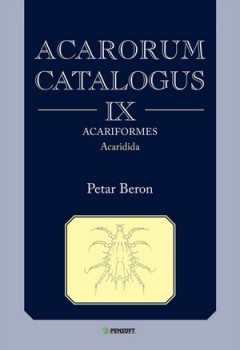
Acarorum Catalogus IX
The present 9th volume of the series Acarorum Catalogus contains lists of mites of 13 families, 225 genera and 1268 species of the superfamilies Schizoglyphoidea, Histiostomatoidea, Canestrinioidea and Hemisarcoptoidea. Most of these mites live on insects or other animals (as parasites, phoretic or commensals), some inhabit rotten plant material, dung or fungi. Mites of the families Chetochelac…
- Edition
- -
- ISBN/ISSN
- 9786192480585
- Collation
- -
- Series Title
- -
- Call Number
- -
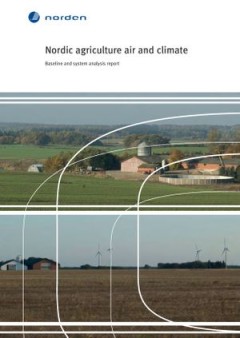
Nordic agriculture air and climate
This report constitutes the main outputs of the project “Pathways to a Nordic food system that contributes to reduced emissions of greenhouse gases and air pollutants”. The overall goals are to present the baseline data regarding the Nordic agricultural sector, its greenhouse gas and ammonia emissions, the regulatory framework and support systems, and conflicts of interest. The report aims …
- Edition
- -
- ISBN/ISSN
- 9789289343190
- Collation
- -
- Series Title
- -
- Call Number
- -
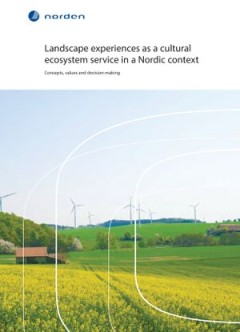
Landscape Experiences As a Cultural Ecosystem Service in a Nordic Context
Cultural ecosystem services in the form of experiences derived from landscapes are potentially important, but often overlooked. Given the large and unprecedented landscape changes many of the Nordic countries are undergoing, there is a need to find ways of including people’s preferences and the value of landscape impacts in policy assessments and decision-making processes. The project aim has…
- Edition
- -
- ISBN/ISSN
- 9789289342391
- Collation
- -
- Series Title
- -
- Call Number
- -
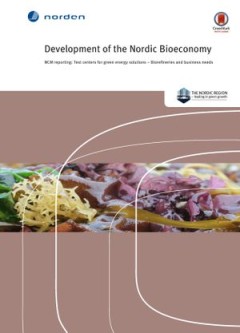
Development of the Nordic Bioeconomy
In 2014 NCM initiated a new project: “Test centers for green energy solutions – Biorefineries and Business needs” to strengthen Nordic bioeconomy by identifying potentials, obstacles, needs and opportunities. The Nordic bioeconomy has a unique profile: Upgrade of many types of residues also to higher value products; good collaboration between private and public sector; R&D efforts in all …
- Edition
- -
- ISBN/ISSN
- 9789289344258
- Collation
- -
- Series Title
- -
- Call Number
- -
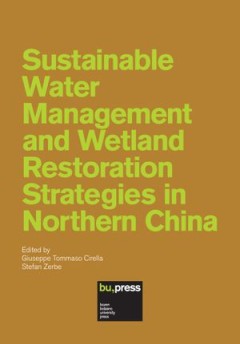
Sustainable Water Management and Wetland Restoration Strategies in Northern C…
This book depicts the results of a research project in northern China, where an international and interdisciplinary team of researchers from Italy, Germany and China has applied a broad range of methodology in order to answer basic and applied research questions and derive comprehensive recommendations for sustainable water management and wetland restoration. The project primarily focused on ec…
- Edition
- -
- ISBN/ISSN
- 9788860460691
- Collation
- -
- Series Title
- -
- Call Number
- -
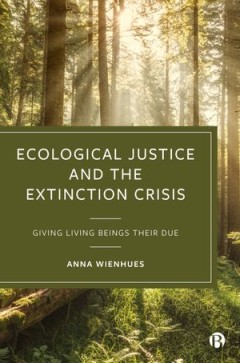
Ecological Justice and the Extinction Crisis
As the biodiversity crisis deepens, Anna Wienhues sets out radical environmental thinking and action to respond to the threat of mass species extinction. The book conceptualises large-scale injustice endangering non-humans, and signposts new approaches to the conservation of a shared planet. Developing principles of distributive ecological justice, it builds towards a bold vision of just conser…
- Edition
- -
- ISBN/ISSN
- 9781529208511
- Collation
- -
- Series Title
- -
- Call Number
- -
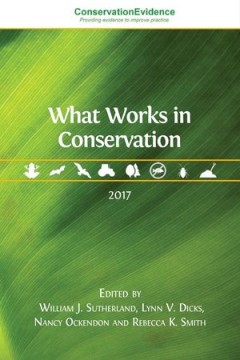
What Works in Conservation 2017
What Works in Conservation has been created to provide practitioners with answers to these and many other questions about practical conservation. This book provides an assessment of the effectiveness of 763 conservation interventions based on summarized scientific evidence. Chapters cover the practical global conservation of amphibians, bats, birds and forests, conservation of European farmland…
- Edition
- -
- ISBN/ISSN
- 9781783743100
- Collation
- -
- Series Title
- -
- Call Number
- -
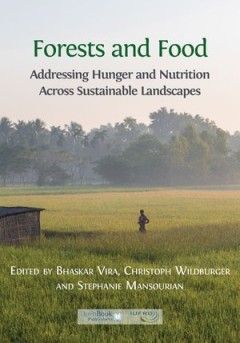
Forests and Food
As population estimates for 2050 reach over 9 billion, issues of food security and nutrition have been dominating academic and policy debates. A total of 805 million people are undernourished worldwide and malnutrition affects nearly every country on the planet. Despite impressive productivity increases, there is growing evidence that conventional agricultural strategies fall short of eliminati…
- Edition
- -
- ISBN/ISSN
- 9781783741953
- Collation
- -
- Series Title
- -
- Call Number
- -
 Computer Science, Information & General Works
Computer Science, Information & General Works  Philosophy & Psychology
Philosophy & Psychology  Religion
Religion  Social Sciences
Social Sciences  Language
Language  Pure Science
Pure Science  Applied Sciences
Applied Sciences  Art & Recreation
Art & Recreation  Literature
Literature  History & Geography
History & Geography